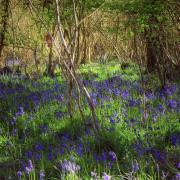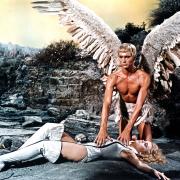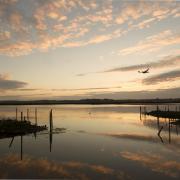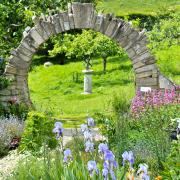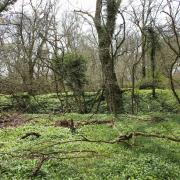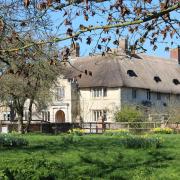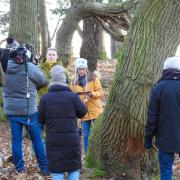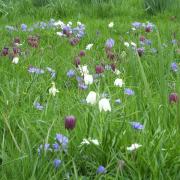Bob Mizon MBE, of Wessex Astronomical Society, reveals how to use Orion the Hunter to located other winter constellations, and when you can see January's Wolf Moon, the highest Full Moon of the year
Orion dominates the southern sky, culminating (reaching his highest point due south) at 10pm mid-month. Use the three belt stars of the Mighty Hunter to find other winter constellations. They point down towards Sirius, the brightest star of the night sky, whose light dances in many colours in Canis Major the Great Dog. To their right is Taurus the Bull, with its red ‘eye’ Aldebaran, resembling an arrowhead flying past Orion’s shield. The triangle of seven glittering stars is the Pleiades.

The saucepan-shaped Plough, part of the Great Bear (Ursa Major), is low in the north. Its two ‘Polar Pointer’ stars, Merak and Dubhe, indicate the position of Polaris the Pole Star, around which all other northern-hemisphere stars seem slowly to turn in anti-clockwise circles.
Later in the evening, the sickle-shaped figure of Leo adorns the north-eastern horizon. Its brightest star Regulus, the ‘Little King’, is a quadruple star system 79 light years away.
January’s Wolf Moon is the highest Full Moon of the year, to the right of Castor and Pollux in Gemini on the 17th. Jupiter starts the year as a bright evening object, sinking towards the western horizon. Meanwhile Saturn, succumbing to the Sun’s glow, is low in the south-west in the early evening.
Click here for Bob's top five stargazing spots in Dorset

Discover Dorset's Dark Skies: Cranborne Chase AONB is Dorset's first Dark Skies Reserve. Find out more about the best spots for star gazing and events happening here at chasingstars.org.uk. For information on astronomy talks and meetings of the Wessex Astronomical Society visit wessex-astro.org.uk and Weymouth Astronomy Club visit weymouthastronomy.co.uk. Monthly star gazing evenings are usually hosted by Wessex Astronomical Society at Durlston Country Park near Swanage durlston.co.uk.





